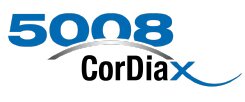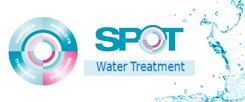FlashMed
| Titolo | How good are we at managing acute kidney injury in hospital? |
| Autore | Soma Meran, AlexaWonnacott, Bethan Amphlett and Aled Phillips - Institute of Nephrology, University Hospital ofWales, Cardiff, UK |
| Referenza | Clin Kidney J 2014; 7: 144-150 |
| Contenuto |
Introduction. Acute kidney injury (AKI) is a common clinical problem associated with adverse outcomes. This study identifies the incidence of AKI in two UK district general hospitals’ without on-site renal services and assesses AKI management and level of nephrologist input. Methods. The AKIN classification was used to identify 1020 AKI patients over 6 months. Data were collated on patient demographics, AKI management and referral to nephrology and intensive care services. Short/long-term renal outcomes were investigated. Patients were followed up for 14 months post-discharge. Results. Incidence of hospital-based AKI was 6.4%. Mean patient age was 73 years. There was 28.1% acute in-hospital mortality with a further 21.6% 14-month mortality. Only 8.3% of patients were referred to nephrology services for in-hospital review, and only 8.1% had outpatient nephrology follow-up. Compliance with the AKI National Confidential Enquiry into Patient Outcomes and Deaths (NCEPOD) recommendations was poor with 32.8% of patients having renal imaging and 15% of patients having acid–base status assessed. NCEPOD compliance improved with nephrology input. Patients referred to nephrology were likely to be younger with pre-existing CKD and severe AKI. 10.5% of AKI episodes were unrecognized. Forty percent of those with unrecognized AKI, (compared with 15% of recognized AKI) developed de novo or progression of pre-existing CKD. Conclusion. AKI in DGHs is mostly managed without nephrology input. There are significant shortcomings in AKI recognition and management in this setting. This is associated with poor mortality and long-term CKD. This study supports a need to improve the teaching and training of front-line medical staff in identifying AKI. Additionally, implementation of AKI e-alert systems may encourage early recognition and provide a prompt for renal referral. |
| Data | 06.10.2014 |
| Lista completa |
|







